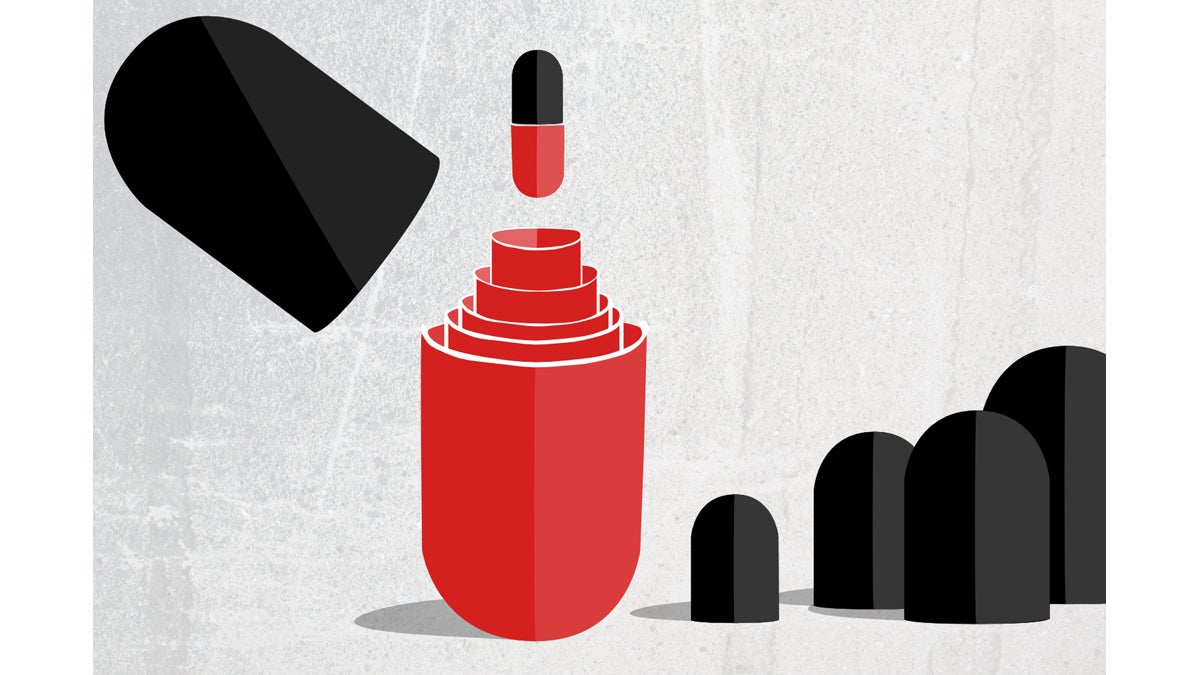Where’s the oversight of psychiatric meds for Pa. youth offenders?
Listen
(Illustration by Alexandra Kanik
Other states have systems in place to track and control prescribing of powerful mood-altering medications.
Pennsylvania is lagging when it comes to tracking the powerful psychiatric medications kids get in the state’s youth correctional facilities.
While other states have reformed the way they control and track such medications so that it is done systemwide, the Pennsylvania Department of Human Services follows only the total amount paid for the drugs prescribed in its six facilities on a systemic basis.
Everything else is looked at on an individual resident and facility basis. Experts and officials in other states say the fragmented approach reduces the department’s ability to see patterns and to plan effective programs.
A PublicSource investigation found that psychiatric medications are being given at alarmingly high rates to the confined youth. The most powerful and risk-laden class of psychiatric drugs, the antipsychotics, was ordered in amounts that could treat an average of one-third of those in the state facilities at any given time over the seven years studied.
Among concerns about the levels of prescriptions is that the drugs can have serious side effects and may be used to keep kids in line.
The rate of antipsychotics prescribed in the state’s youth development centers and forestry camps is higher than that found for juveniles in foster care in Pennsylvania, where 22 percent were given antipsychotics in 2012, according to a study commissioned by the Department of Human Services (DHS).
The state and much of the nation is focused on stemming the high levels of psychiatric medications used in foster care.
But other states have realized kids in the delinquency system often come from foster care or similar backgrounds. They have begun scrutinizing medications prescribed to both populations through the courts and the departments that oversee the facilities. In addition to tracking the meds, they have also established controls on prescribing.
Experts see this as a crucial health matter for kids who are already slipping through the cracks.
Robert Schwartz, co-founder of the Juvenile Law Center in Philadelphia, said the state needs a way to track variations in prescribing by doctors and facilities, the degree to which parents are involved in making decisions about treatment, and the impact on kids, both foster and delinquent.
“It’s pretty clear that we do not have that system today,” he said of the state’s methods.
Continue reading, find charts and statistics by clicking through to PublicSource.
WHYY is your source for fact-based, in-depth journalism and information. As a nonprofit organization, we rely on financial support from readers like you. Please give today.


